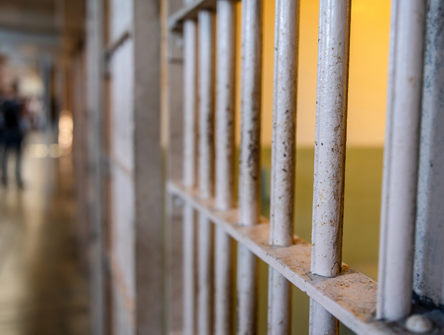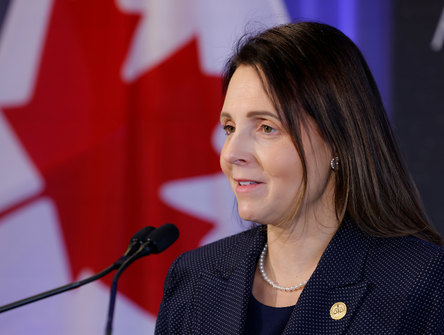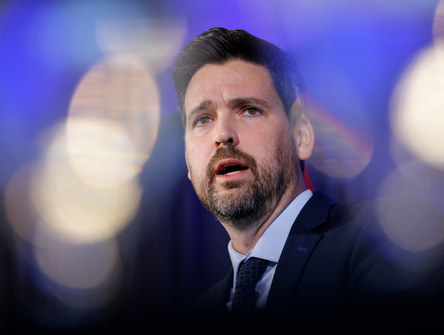The changing definition of family
Canada’s parental laws are inconsistent for non-traditional families. Provincial governments need to re-examine them.

Karin Galldin's family started as many do, with a simple desire to raise children. While the route she chose to get there was still unpaved, the path had been cleared. By the time she gave birth to a beautiful baby girl, everything was in place for her to get legal recognition as one of four parents along with her partner, as well as the birth father and his partner.
There is more acceptance today around diverse relationships involving multiple parents and alternative family structures. The legal definition of family continues to evolve, in some provinces more so than in others. But the process remains slow, incremental, and inconsistent. And it can be costly for those who decide to push the envelope by launching a constitutional challenge.
"I'm a queer woman; I was in my late 30s. I had a good friend, Matthew, who I increasingly felt would be a wonderful person to co-parent with," says Galldin. A lawyer who works on policy for the Federation of Law Societies of Canada, Galldin is now on maternity leave with the family's second child. As the two friends started planning their approach to parenting together, they both met their significant others who were soon keen to become part of the process.
They spent a great deal of time discussing what was important to each of them, and to learn about each other's fears, hopes, aspirations, and shared values. They then drew up a parenting agreement, which they used again when they decided two years later to have a second child.
"This was all occurring in the context of law reform in Ontario, prompted by a constitutional challenge," says Galldin. "Had we created our family under the old regime, we would have had only two parents registered on Zora's birth certificate. We certainly couldn't ever have had four."
Galldin happened to be living in the Ottawa riding represented by Yasir Naqvi. As Ontario's attorney general at the time, Naqvi was having conversations with families during the development of the new All Families Are Equal Act. The legislation, enacted in 2016, meant that those who weren't involved in the conception of a child could be named as parents through a simple process, without having to go through the adoption route. It was the first time the province would update its parenting laws since 1978. The result was that up to four parents could be named in the birth certificate providing there is a pre-conception parent agreement. And it all happened just in time for Zora's arrival.
This kind of legal recognition has practical ramifications, says Robert Leckey, Dean of the McGill University Faculty of Law, where he teaches constitutional and family law.
"Without parental status, you couldn't pick up the kid at daycare without documents; you couldn't travel with the kid; you couldn't authorize a vaccine — all the things that being a parent makes possible."
In 2007, the Ontario Court of Appeal in A.A. v. B.B. allowed a child to have three legally recognized parents. But the threat of another constitutional challenge some years later by Joanna Radbord representing LGBTQ families in Grand v. Ontario further hastened the government's resolve to pass the All Families Are Equal Act in 2016.
The Court of Appeal ruling provided some direction to judges in other common law provinces to recognize more than two parents, says Leckey. But the approach to the different permeations of parents and parenting remains patchy across the country.
While the 2007 decision opened the doors to three parents in Ontario, Quebec has dismissed considering anything beyond two parents. Leckey sees nothing on the radar indicating that will change.
Last year, Quebec Superior Court Justice Gary Morrison urged the provincial government to re-examine its laws. In a recent case, he could only recognize two people as parents of a child living in the Laurentians, when three were seeking to be named. The appeal was heard this past spring, but as of this writing, no decision had been rendered.
The question for some observers is whether parenting laws could evolve similarly to same-sex-marriage recognition in Canada. Leckey doesn't seem to think so. In addition to the different types of possible relationships, there are various ways in which one could become a parent, from traditional conception and surrogacy to assisted reproduction and adoption. "There are a whole lot of different regimes and different rules that are in place," he says. The provinces are far from taking a unified approach to recognizing who a parent is.
Just over a year ago, a judge in Newfoundland agreed that it would be in the best interest of a child born in 2017 to declare as its parents a woman and two men involved in a polyamorous relationship. The province had argued that its Children's Law Act prohibited recognizing more than two people as the legal parents.
In 2014, British Columbia was the first province to have a law acknowledging that more than two parents could be named on a child's birth certificate.
But there are also questions surrounding the makeup of the parents' relationship that has demanded attention.
Ottawa lawyer Marta Siemiarczuk helped her former law school colleague Natasha Bakht and her friend, Lynda Collins, seek a declaration of parentage from the courts for Bakht's son, Elaan. Bakht, a family law professor at Ottawa U, became pregnant with Elaan by anonymous donor insemination, having decided in 2009 to become a single mother. Siemiarczuk, a partner at Nelligan O'Brien Payne LLP, notes that seeking the declaration was once a rarely used procedure, intended initially for unrecognized fathers.
But as society changed, along with continuing technological developments, the use of the declaration of parentage has gained traction, particularly by same-sex couples. But Bakht and Collins, who is also a law professor at Ottawa U, are not a couple. They are simply friends who share a love for Elaan and cared for him together. Collins had even moved into the same condo building as Bakht, occupying another unit, to help take care of the boy who has multiple and complex disabilities. Nowhere in Canadian law could Siemiarczuk find any other situations where parties sought a declaration in a post-conception situation involving a non-spousal relationship.
"Normally when there is a declaration of parentage being sought, it's because there is either a biological connection somehow with the child, or there's a spousal connection between the non-biologically connected "parent" and the biological parent," she says. "They're platonic friends, and they became co-parents that way."
Siemiarczuk later represented two other platonic friends in S.M. who were prevented from adopting the oldest of two siblings they had been fostering because they weren't spouses. They first challenged the adoption provisions under the Child and Family Services Act, and then amended their lawsuit to challenge new provisions under the Child, Youth and Family Services Act. Siemiarczuk's clients were ultimately successful. "We essentially persuaded the court to remove the phrase: 'who are spouses of one another' and now it just says: 'two people'," she says.
In its factum as intervener, Ontario's Attorney General argued in support of the applicants. In doing so, it pointed out several provinces and territories allow two adults to jointly apply for adoption without specifying that they are in a spousal relationship.
And yet, there are still roadblocks in Ontario. Bakht and Collins secured their declaration of parentage just weeks before the All Families Are Equal Act was enacted. The new law recognizes families beyond the typical nuclear structure and aims to treat all types of parents equally, regardless of sexual orientation, or how the child was conceived. But according to Bakht, its requirement for a pre-conception agreement would have presented an obstacle to naming Collins as a parent because of the decision to enter the picture after Elaan was born. "The All Families Are Equal Act changed the legislation so that judges, it appears, are now fettered in their discretion to give declarations of parentage, particularly in situations where parents have not formed the intention to parent a child before the child is conceived."
She remains hopeful, however, having since seen decisions in which judges are not willing to have their discretion restricted and given the courts' parens patriae jurisdiction to act in the best interests of the child. And the successful challenge by the friends wanting to adopt their foster child further provides a foundation upon which platonic friends can become parents. She anticipates the next step in the evolution of parenting laws is for the courts to hear challenges against legislative requirement that parents be spouses to get recognition (outside the adoption process involving the Childrens' Aid Society – which the friends in S.M. have already achieved). It's a requirement, applicants are likely to argue, that infringes upon their constitutional rights on the basis of marital status.
"You have to recognize that as lawyers or as legislative drafters we can't possibly think of all of the different permutations and the diversity of families that exist or can exist someday so you have to have broad legal principles," says Bakht. "But where a family situation arises that hasn't been thought of, it's really a shame to exclude them where that family is raising children in a context that is healthy and loving."
Galldin's family acknowledges that she was in the right place at the right time, but she recognizes that others elsewhere in the country aren't as lucky. "Queer people have been relying on extramarital or unconventional non-primary relationships to create and have children for quite some time," she says adding that it was important for the co-parents to be able to rely on institutions that recognize each parent's role in their children's lives. "But at the end of the day, it was actually that our children knowing who their parents were and knowing that they had a papa and a dad and a momma and a mum. To have all four parents' names on the birth certificate is very powerful for us," she says. "As queer people continue to think about ways in which they grow their community, the ways in which they want to parent their children, I think that these kinds of permissive laws are going to allow more and more iterations of families like ours."


